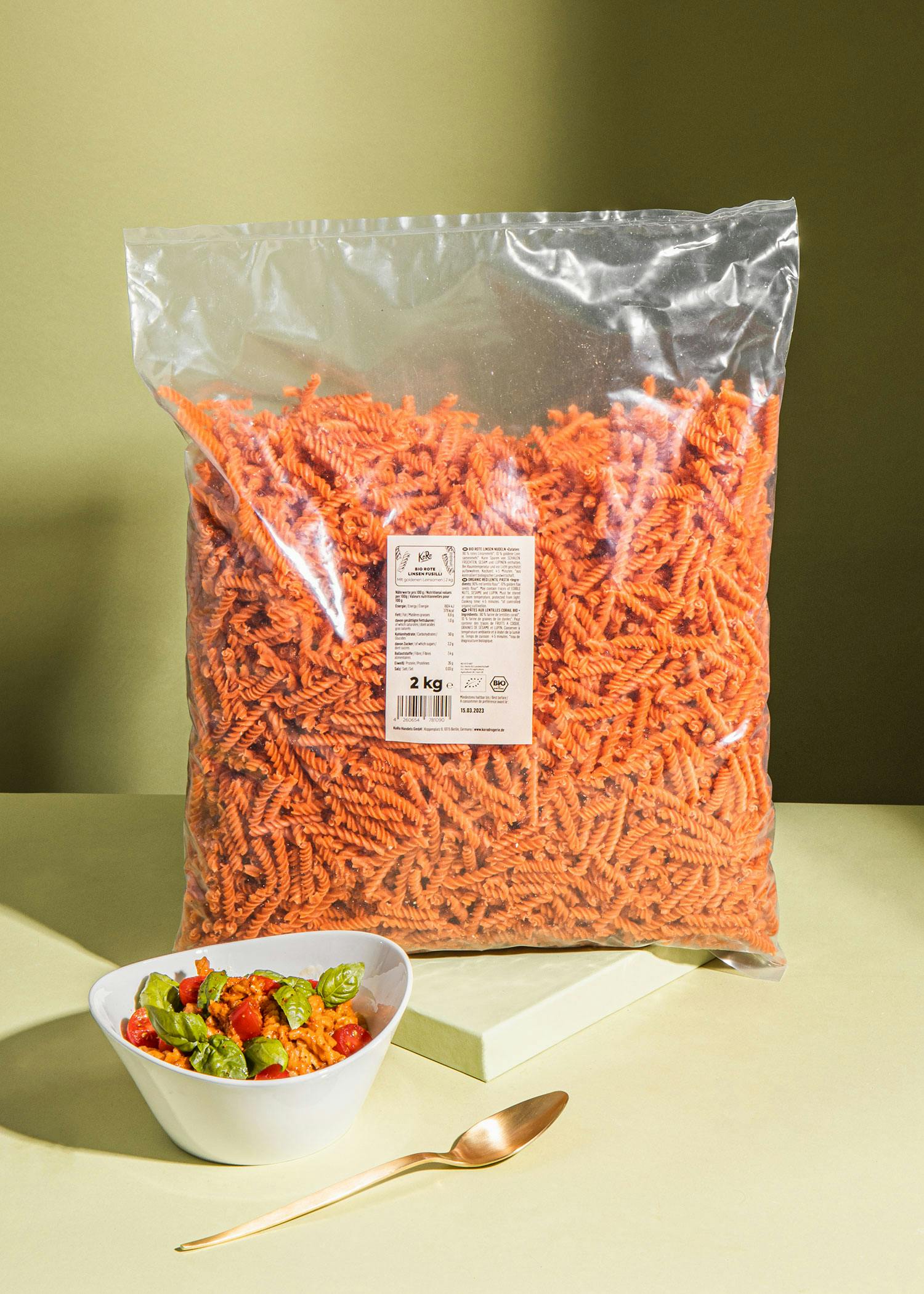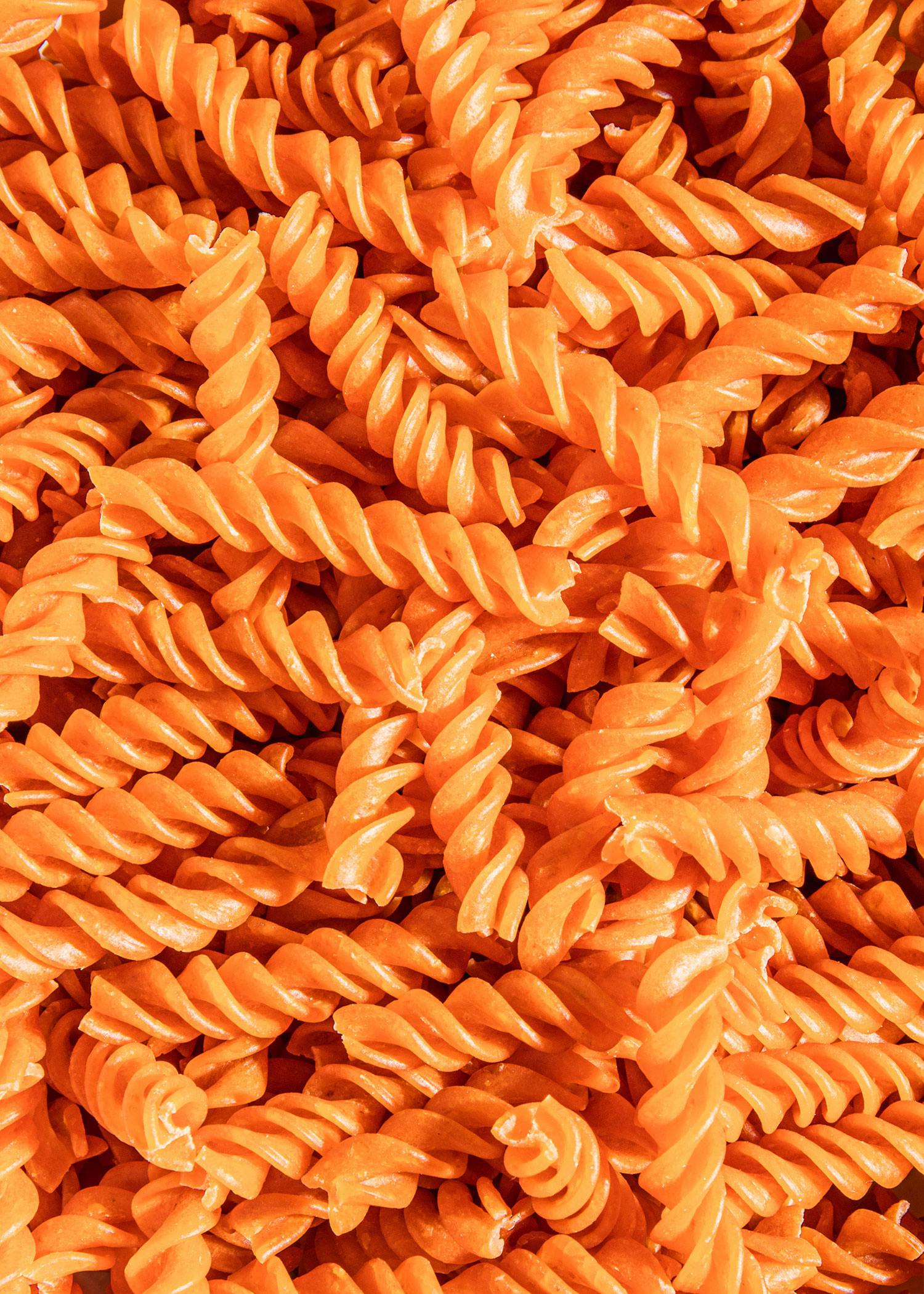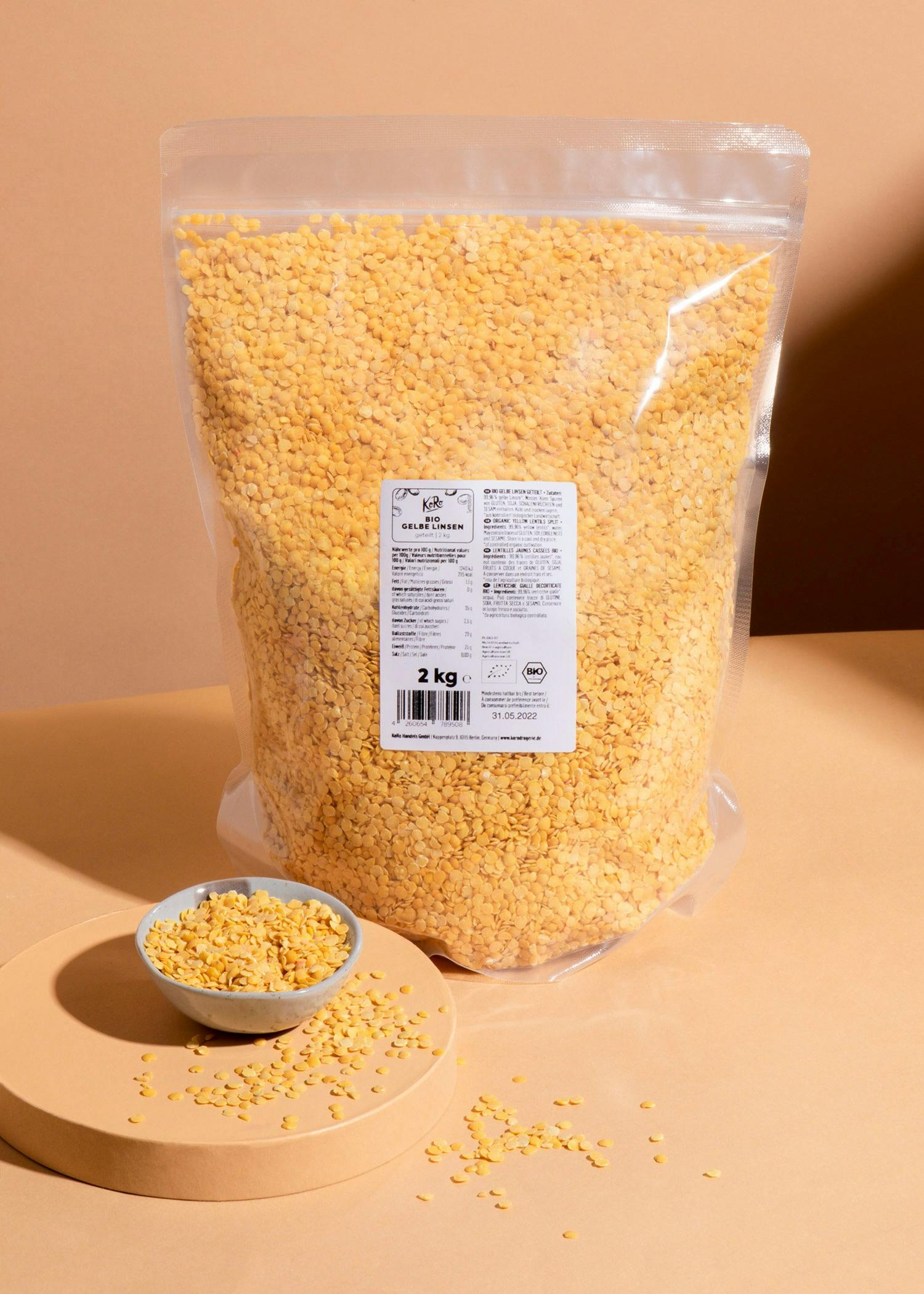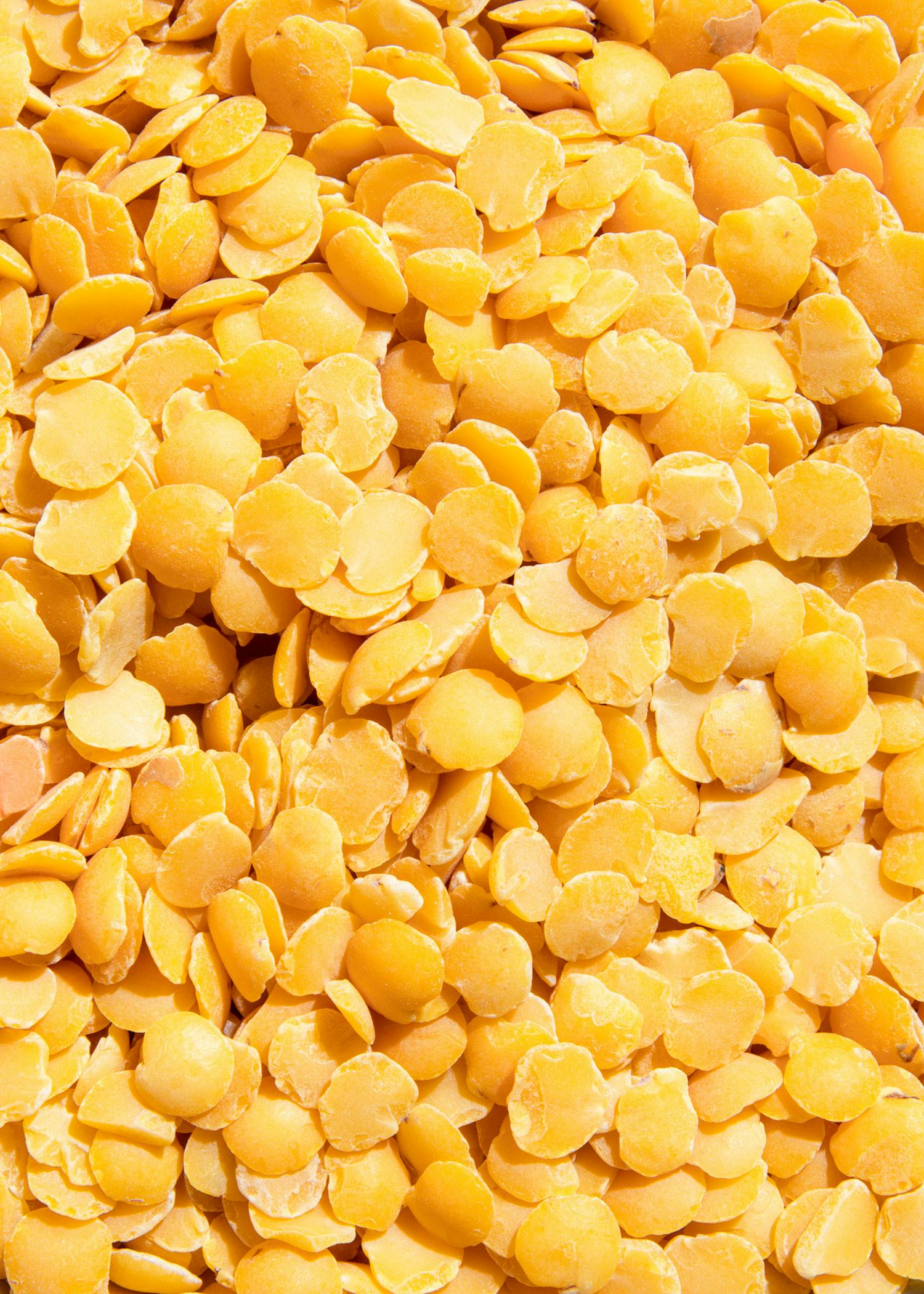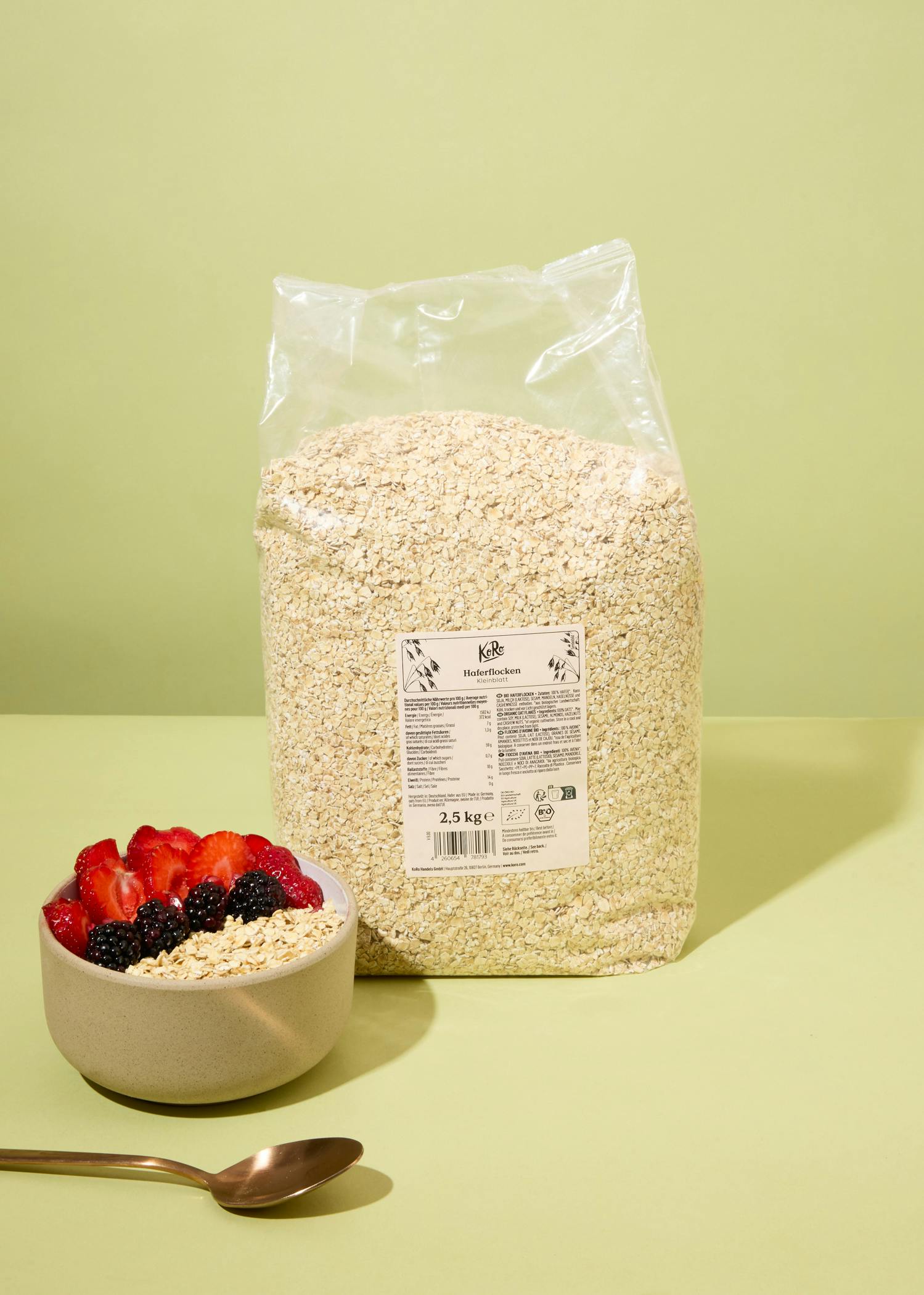What are proteins actually?
Proteins are important building blocks for muscles, enzymes, hormones, skin and hair. You can find proteins mainly in legumes, meat, fish, dairy products, eggs, grains, nuts and seeds. Proteins are often colloquially referred to as egg whites. However, this is obviously also the name given to the white part of a hen's egg, which is why there is sometimes confusion. It's best to remember: proteins = egg whites.
But how are proteins from pulses, nuts etc. absorbed and metabolized by the body? Don't worry: you don't need a doctorate in biology to understand this! Let's keep it simple: proteins are made up of many smaller building blocks - amino acids. Some of them are essential, which means they have to be obtained from food and your body cannot produce them itself. In your body, the proteins you consume are broken down into individual amino acids in the digestive tract by certain enzymes. These amino acids are then transported via the blood to the places in the body where they are needed. This is how the individual amino acids arrive in the muscle, for example. There they are reassembled into proteins through complex processes and, to put it simply, incorporated into the muscle.
How much protein do you need?
The German Nutrition Society (DGE) recommends 0.8 g of protein per kilogram of body weight per day for adults. In concrete terms, this means that if you weigh 60 kg, for example, you need 48 g of protein per day. You can achieve this with 6 tbsp oats, 200 ml soy drink, 100 g tofu, 200 g wholemeal pasta and 50 g lentils, for example. It's easy to make a delicious porridge for breakfast, a curry with tofu for lunch and pasta with lentil bolognese for dinner - yummy! Just remember: if you're involved in competitive sports, pregnant, breastfeeding or over 65, you'll need more protein. You can find all the information on the DGE website.
Protein: veggie or animal?
Plant and animal protein sources differ in the composition of amino acids. Animal products generally contain all the essential amino acids in a ratio that almost meets your needs - jackpot! Plant-based foods often lack at least one amino acid that is not present in sufficient quantities. However, if you combine the foods smartly, the amino acids complement each other so that you can easily meet your protein requirements completely from plants.
Pulses and wholegrains are a real dream team! Corn and kidney beans intuitively find their way into chili sin carne. But you can also enjoy a slice of wholemeal bread with delicious chickpea hummus or refine your porridge with peanut butter - yes, peanuts are a legume! And we don't want to deprive you of a real all-rounder either: Soy! This legume is packed with all the essential amino acids and can spice up your meals in a variety of ways. How about our vegan soy protein crispies, delicious marinated tofu or the finest soy cutlets, for example? Treat yourself!
The right preparation
You now know all about combining foods! But there's another secret hack to help your body better utilize plant-based proteins: Soaking, sprouting, fermenting! This increases the bioavailability of amino acids and reduces the phytic acid contained in pulses. It can bind minerals such as calcium, zinc or magnesium so that you can no longer utilize them. So: soaking, sprouting and fermenting for the win!
Do you need protein shakes or bars after sport?
Proteins help to maintain and increase muscle mass. That's why it's clear: after the gym, many people reach for a shake or bar to help them save their gains. Unfortunately, we have to disappoint you: You don't really need high-protein products! A balanced diet with protein-rich foods will do the job just as well. However, high-protein puddings, protein powders, bars and the like have a clear advantage: you can prepare them quickly and easily and always have your portion of protein ready to go! High-protein products can therefore help you to get your daily portion of protein, especially if you exercise intensively. However, the basis should always be a wholesome diet. KoRo secret tip: You can
easily find your favorite among
our best protein powders here!Whether animal or plant-based: make sure you eat a balanced diet with a variety of protein sources. And treat yourself to a tasty shake or bar here and there as a nice add-on, then a sufficient protein intake is very easy even in stressful everyday life - KoRo's word of honor!
